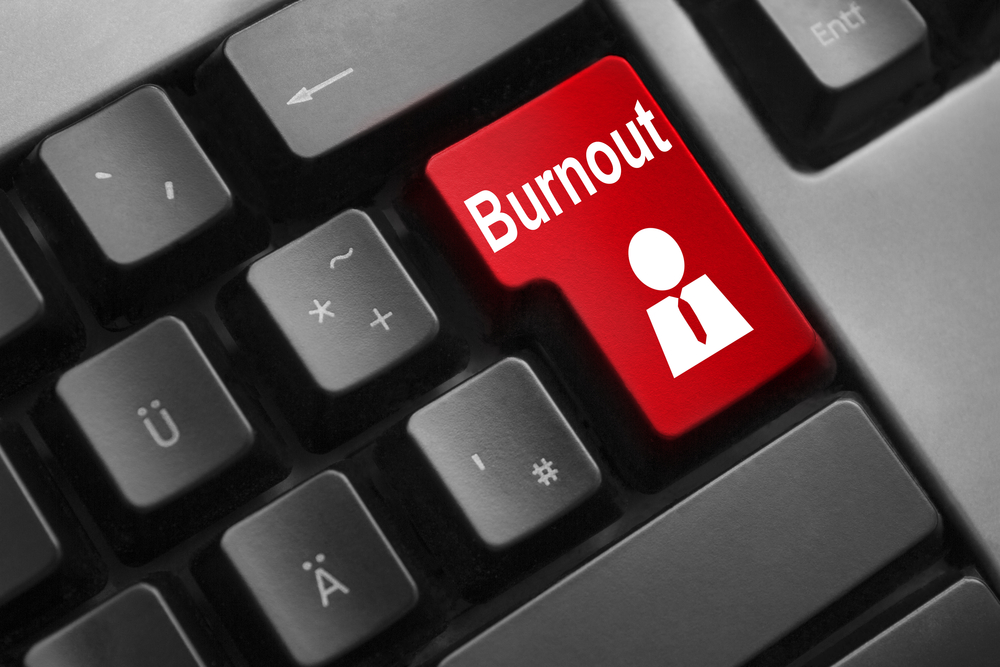We all know what workplace burnout is intuitively, but pinning the concept down is easier said than done. The first academic attempt to do so was by Christina Maslach in 2001, who suggested that burnout was the interplay of a variety of emotional responses induced by extreme, stressful or painful working conditions.
Burnout, as Maslach saw it, was characterised by three main features. The first was a high degree of emotional exhaustion – the feeling that one is overextended and unable to dedicate more psychological resources to one’s work.
The second feature was powerlessness. An employee might feel as if he or she was working exceptionally hard toward a goal, but not actually getting any closer to achieving it. For instance, a member of your team could be trying to complete a project but coming up against constant resistance from the people around them; they know what needs to be done but are being thwarted by others.
Finally, Maslach identified cynicism towards one’s work as a third indicator of burnout. Cynical employees lose interest in serving customers, see them as an enemy or a threat, and can bring down the morale of the team.
Burnout, therefore, is a complex response to a stressful working environment which dominates a worker’s emotional life. The condition is most common among people who do not (or cannot) separate their work from the rest of their lives and who struggle to cope with the emotional demands of their occupation.
What Are The Signs That An Employee Is Suffering From Burnout?
Workplace burnout is a serious issue for employers. Not only does it mean that there’s something wrong with the workplace culture and the demands on staff, but it is also costly: burnt out employees lose interest in their work, make mistakes, and damage the reputation of your organisation.

As a manager of a UK organisation, how can you recognise the signs of workplace burnout?
- Reduced efficacy. When employees feel like they have a lack of professional efficacy (or they are becoming cynical), their work will inevitably suffer. What’s the point of trying hard if you’re just banging your head against a brick wall?
- Fatigue. Take a look at your employees: do they look exhausted? How do they move? Sluggishness and a pale complexion could indicate fatigue.
- More errors. When people get tired, they make more mistakes in their work. If a reliable employee suddenly begins making unexpected errors, they may be suffering from burnout.
- Sarcasm and negativity. Sarcasm and negativity are psychological tools people use to protect them from the emotional demands of their work when they have nothing more to give.
- Headaches and irritability. Higher tension and stress lead to an increased instance of headaches. Your colleagues may also become more irritable as their emotional reserve runs low.
- Poor motivation. Colleagues who believe that their actions are futile will not see the point of working hard or encouraging others.
The Causes Of Burnout
A Desire To Overachieve
People with type A personalities want to be the best at what they do and achieve great things in their careers. Working hard might seem like a good thing, but it can ultimately undermine long-term success if it leads to burnout.
Being Pulled in Multiple Directions
Entrepreneurs often become burnt out because there are so many demands on their time. Lenders want to meet them to discuss the terms of their loans, staff need them to resolve issues in the workplace, and customers are on the phone complaining about the service. It’s a recipe for workplace burnout.
Lack of Support in the Workplace
Employees need to feel as if their supervisors can support them and have their best interest at heart. A lack of support can lead to cynicism and feelings of personal inefficacy,
Insufficient Resources
Without sufficient resources, a person cannot carry out their work, and if they can’t do that, then they will inevitably feel ineffective.
The effects on business from employee burnout can be dramatic. A company with burnt out staff can suffer a higher rate of absenteeism, lower levels of productivity, and, in extreme cases, sabotage.

How To Prevent Burnout In The Workplace
We’ve established that burnout isn’t a good thing. But how do you prevent it from happening in the first place?
Keep Lines Of Communication Open
When employees have no support in their roles, they’re much more likely to feel that they can’t make a difference, even if they try. Even though they are under pressure from management to deliver results, they don’t have the support or the resources they need to meet their objectives: they’re being asked to do the impossible.
Management, therefore, needs to ensure that lines of communication remain open. Colleagues must be able to come forward and explain their situation. It’s the job of employers to rationally appraise the circumstances, determine whether the employee’s grievances are valid and then put in place a plan to resolve the issue.
Limit Working Hours
Working longer isn’t necessarily better. Studies suggest that working more than fifty hours a week causes productivity to fall off a cliff.
Employees are more prone to burnout in cultures which promote long hours, which is why many firms are now introducing policies to limit working hours.
Be Clear About Individual Roles
When a company advertises a job, the role is clearly set out in the job description. But in some companies, you see the phenomenon of “role creep” where an employee takes on more and more responsibilities for the convenience of management – a practice that invariably leads to burnout. By contrast, well-managed companies give each person a specific role and make sure that they stick to it, preventing any one individual from having to take on too much responsibility.
So, What Now?
There are, of course, many ways that companies can deal with the problem of employee burnout. But the key is to put in place systems which prevent it in the first place, addressing each of the causes in turn.
Nobody is immune to the effects of burnout, even the most accomplished of employees. Employers, therefore, need to put in place a set of strategies that protect workers wellbeing and ensure the success of their enterprise in the future.
